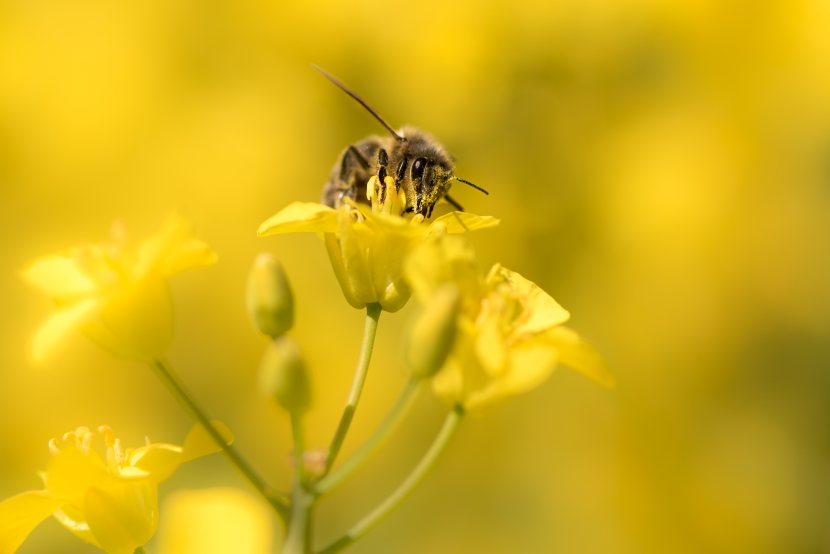Pesticide 'reduces queen egg development', study suggests

Use of a common neonicotinoid in spring could have an impact on wild bumblebees by interfering with their life cycle, a new study suggests.
The study, by Royal Holloway London and published in Proceedings of the Royal Society B, showed the impact of the neonicotinoid thiamethoxam on the feeding behaviour and ovary development of four species of queen bee.
The researchers say this is likely to reduce bee populations later in the year.
Thiamethoxam, manufactured by Syngenta, is one of three neonicotinoid insecticides currently restricted for use by the EU.
One explanation for the reduction could be that thiamethoxam impacts queens’ pollen consumption, and pollen contains essential nutrients for ovary development and brood production, said the researchers.
Taking less food
The effects of the insecticide at levels deemed similar to those encountered in the wild were investigated in the laboratory.
After two weeks of exposure, two of the four species of bumblebee took in less food. There were effects on egg development in all four species.
"We consistently found that neonicotinoid exposure, at levels mimicking exposure that queens could experience in agricultural landscapes, resulted in reduced ovary development in queens of all four species we tested," said lead researcher, Dr Gemma Baron of Royal Holloway University of London.
"Impacts of neonicotinoid exposure on feeding behaviour were species-specific, with two out of four species eating less artificial nectar when exposed to the pesticide.
"These impacts are likely to reduce the success of bumblebee queens in the spring, with knock-on effects for bee populations later in the year."








